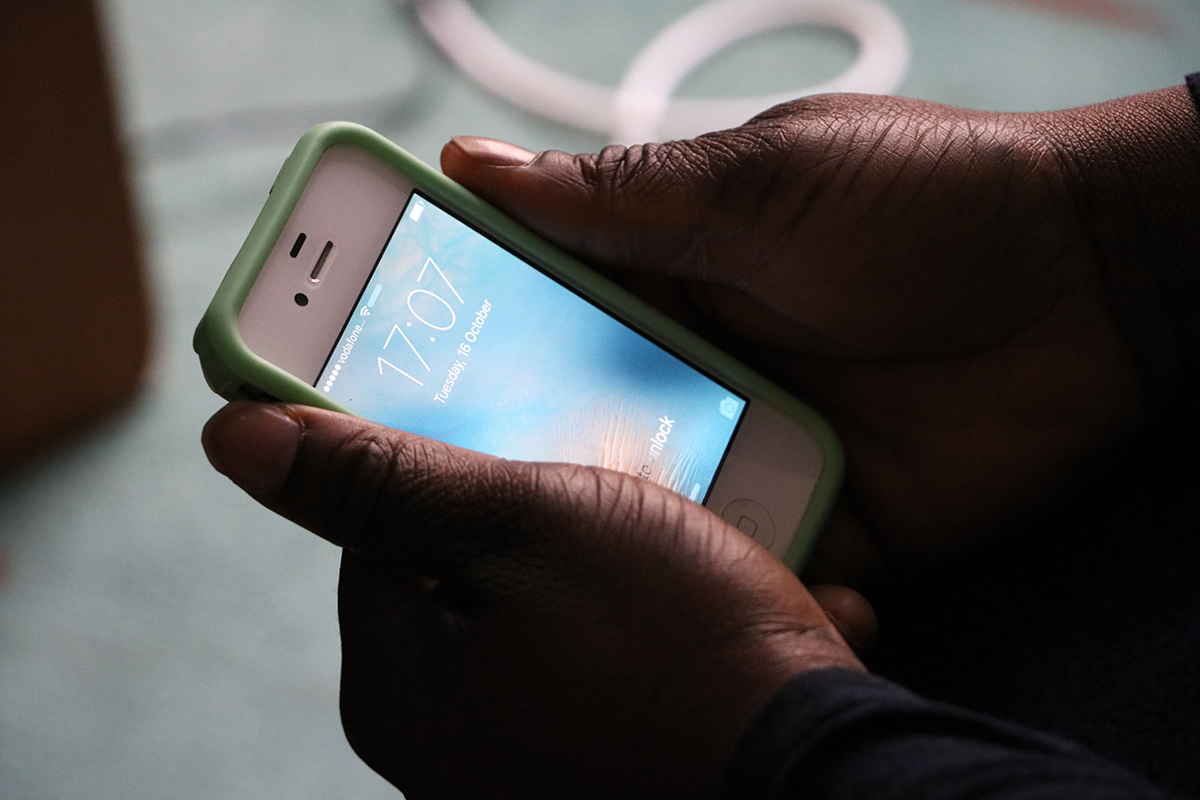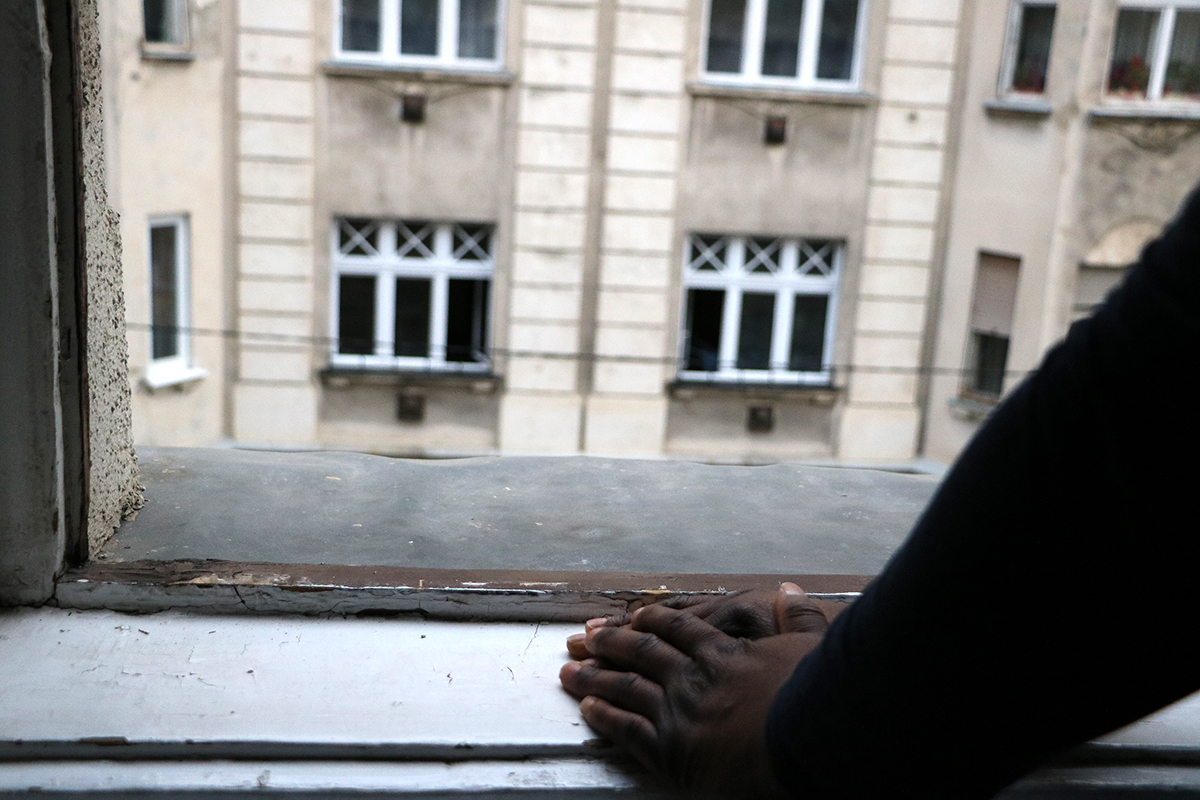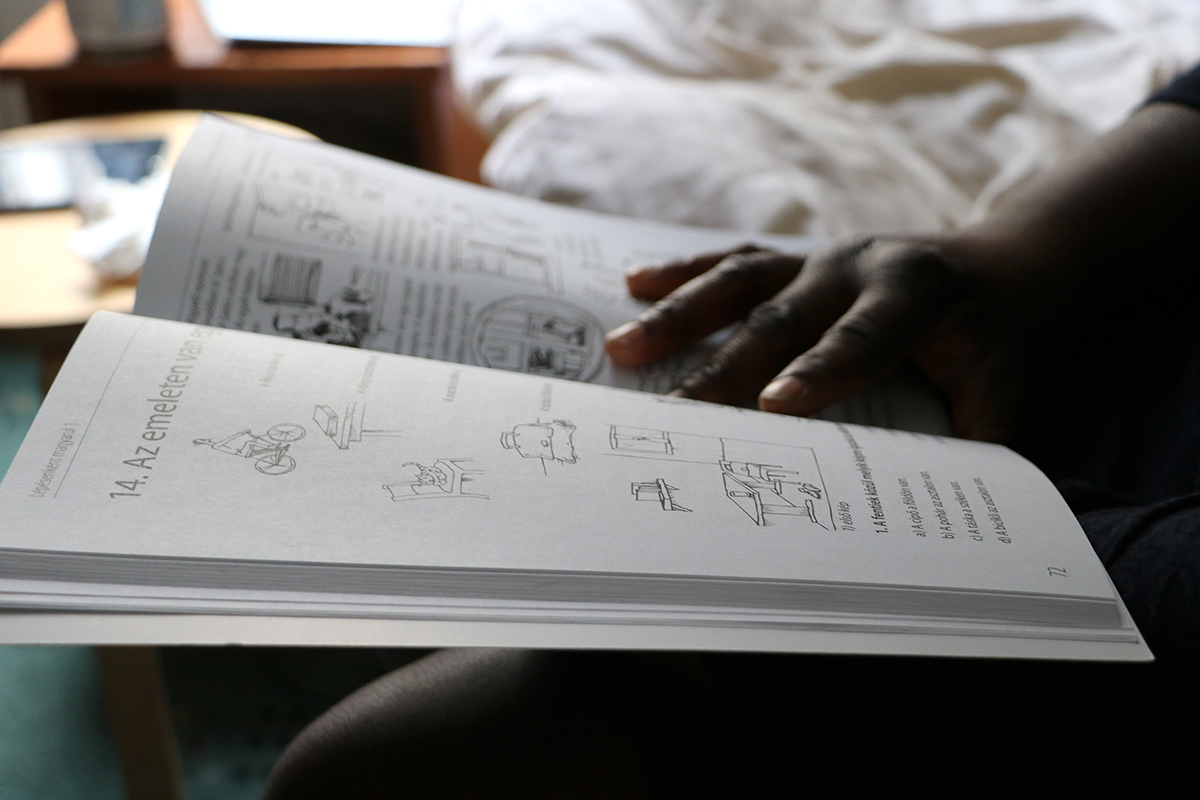Legal status separates a refugee mother from her four kids
Freedom and safety came at a price for Anne: she had to leave her children behind, with a very slim chance of seeing them again.
© UNHCR/Zsolt Balla
In her rented room in downtown Budapest, Anne* (30) looks tired from working at two jobs but otherwise seems OK. Appearance is deceptive. A mention of her four children back in Nigeria brings tears to her eyes. She hasn’t seen them in three years.
Anne has subsidiary protection rather than full refugee status in Hungary, which means she is not entitled to family reunification. “This status doesn’t let me bring my children, although the people who gave it know I can’t go back to visit them,” she says. “Do they want me to forget my children?”
“They’re all I have and I am all they have.”
Born in Kaduna, Nigeria, Anne never spent a day in school. At the age of 12, she was married off to become the third wife of a traditional doctor. She gave birth a year later, and had three more babies after that.
Her husband was abusive. After several unsuccessful attempts, she escaped from him with the help of a woman from the local market. Before running away, she moved the children to her mother’s house. That was where she kissed them goodbye. “I think about them all day, every day,” Anne says. “They’re all I have and I am all they have.”
A few months later, Anne reached safety in Hungary. Had she been given full refugee status, being reunited with her children would just be a matter of paperwork. But with her subsidiary protection status, it’s a long, complicated, almost impossible process. Anne would need a monthly income of HUF 65,000 ($235) per child to be eligible for family reunification, which for an illiterate Nigerian refugee in Hungary is extremely difficult to achieve.
“Every day I try to be happy but inside I feel I’m dying.”
Even staying in touch with the kids has not been easy. There was no phone at her mother’s place, so the only way to reach them was to call a phone booth near their house. Then Anna’s husband started to harass her mother and the children and they moved, leaving Anna without contact. She did not hear from them for almost two years.
“A Nigerian friend of mine was going to visit my hometown, so I paid him to find my children, and luckily he did,” she says. “Immediately I bought mobile phones for them. I never want to be disconnected and out of touch with them, ever again.”
Anne is trying hard to build a new life in Hungary. She works full-time at a state-run Hospital in Budapest, in a maintenance department, earning just enough to pay for rent and essentials. She has a second job at a cleaning company to pay for her children’s education in Nigeria.
She is eager to study herself — to learn Hungarian and eventually become a nurse.
“The heavy pressure in my life is really too much for me to handle” she says. “Every day I try to be happy but inside I feel I’m dying.”
Everything would be different if only she could have her children with her, she says.
“Family is the cornerstone of society, and when children are torn apart from their parents by persecution, they should receive all possible support to be reunited with them again,” says Yolande Ditewig, UNHCR’s senior regional policy officer. “People under subsidiary protection have the same humanitarian needs as refugees. There is no reason to distinguish between the two when it comes to family life and family unity.”
Of her four children, Anne is most worried about her two daughters, now 10 and 16. The older one has already become the fourth wife of someone Anne has never met. Anne wants her kids to have a better life than she did, but she feels helpless.
Alone and desperate in Budapest, she finds relief in religion and goes to church every week. “I’m still learning to read, so I can’t read the Bible yet, but I know the power of God. I pray to Him to reunite me with my children, somewhere, someday…”
*Not her real name.



